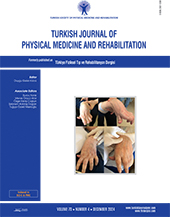The value of inspiratory muscle training on poststroke sarcopenia and its effect on rehabilitation outcomes: A randomized controlled trial
Patients and methods: In the randomized controlled trial, 367 patients with a first stroke event between December 2021 and May 2023 were randomly allocated to an experimental group and a control group. Of the patients, 329 (179 males, 150 females; mean age: 61.0±8.7 years; range, 35 to 78 years) completed the experiment and were included in the analyses (experimental group, n=164; control group, n=165). Both groups received conventional neurological rehabilitation treatment, and the experimental group also received IMT. The incidence of poststroke sarcopenia and pneumonia during four weeks of treatment were examined and compared. Additionally, an analysis was conducted on the variations between the two groups in maximal inspiratory pressure (MIP), modified Rankin scale (mRS), trunk impact scale (TIS), and modified Barthel index (MBI).
Results: Following four weeks of therapy, the experimental group experienced a reduced incidence of poststroke sarcopenia (p=0.004) and pneumonia (p=0.017) than the control group. The trial group performed better than the control group in MBI (p=0.002), TIS (p<0.001), MIP (p<0.001), and mRS (p=0.011) scores after intervention.
Conclusion: In conclusion, the findings demonstrate that early IMT can significantly lower the risk of poststroke sarcopenia and pneumonia while also improving the prognosis for stroke patients` recovery.
Keywords : Activities of daily living, inspiratory muscle, sarcopenia stroke

















